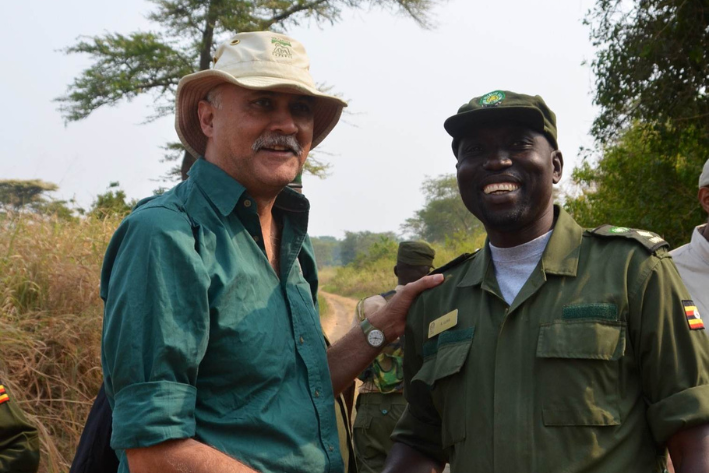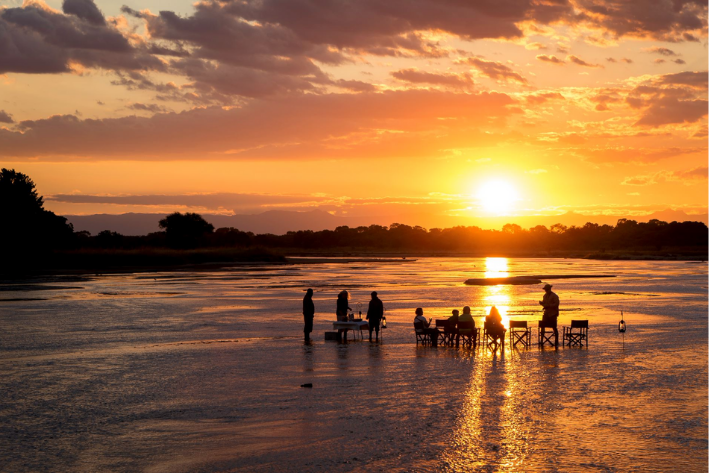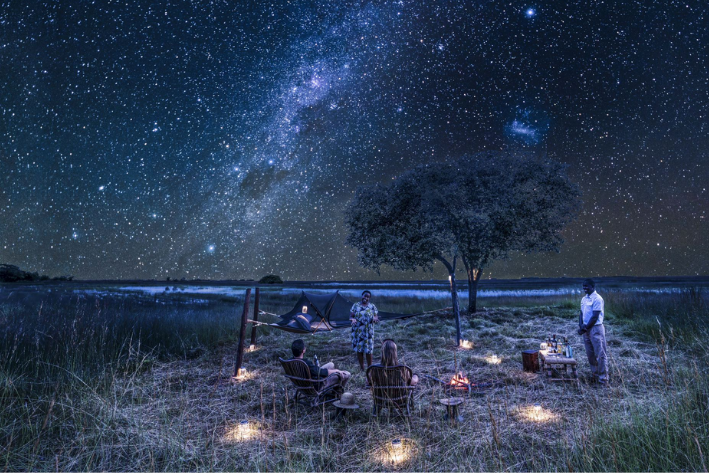Introducing Tyrone McKeith
Authentic Kafue and Liuwa safaris underpinned by a passion for conservation
In this, the first of a series of blogs we are running under the “Introducing…” banner, we’ll be meeting one of our favorite African safari partners – Tyrone McKeith of Jeffery & McKeith Safaris – and finding out more about their special brand of owner-run wilderness experiences
We’re constantly inspired by the people we do business with across Africa – the special hand-picked selection of amazing safari camps and lodges, safari operators and gurus we work alongside to offer our guests truly authentic, immersive African adventures. These are the people who share our passion for Africa and are committed to our ethos of sustainable, responsible safaris underpinned by conservation and community.
So we’ve decided to shine a spotlight on the incredible work they do and the wonderful experiences they offer by creating a series of feature blogs under the banner “Introducing…” – literally showcasing some of the superlative safari brands we work with and introducing the people behind those brands.
To kick off this series we’re putting our good friend Tyrone McKeith center stage. Along with his business partner and besty Phil Jeffery, he founded the simply sensational Jeffery & McKeith safaris, which has two camps in Zambia’s breathtaking Kafue National Park and runs mobile safaris in Liuwa Plain National Park…
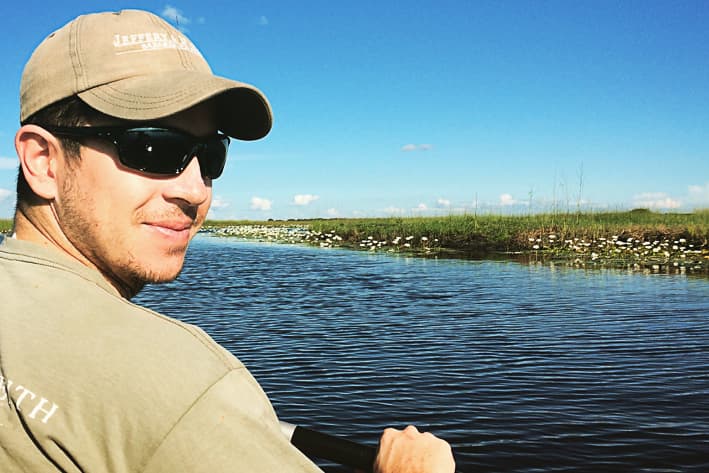
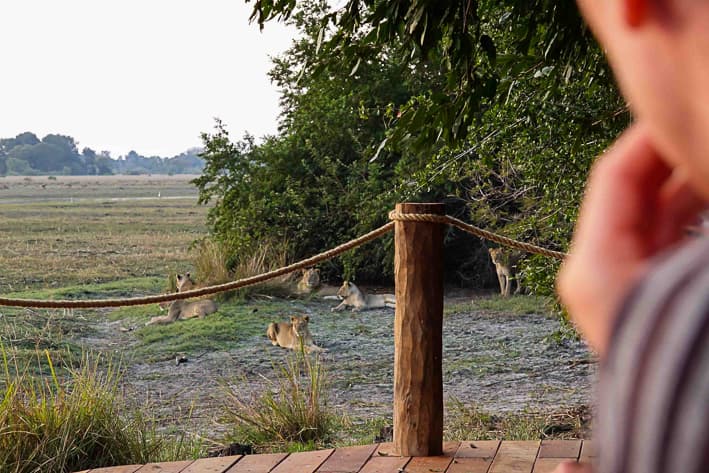
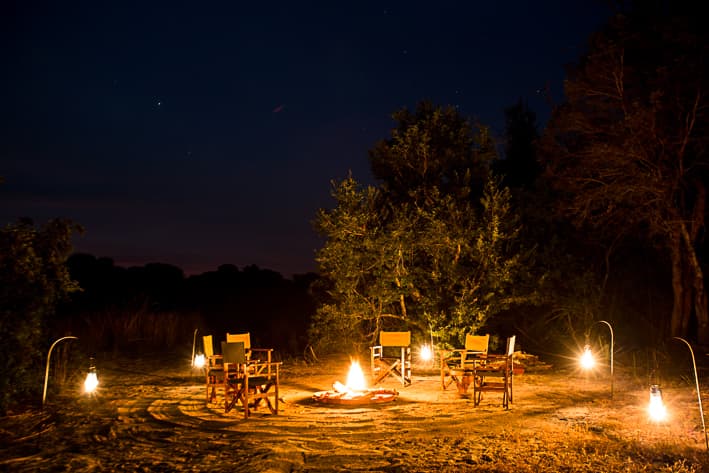
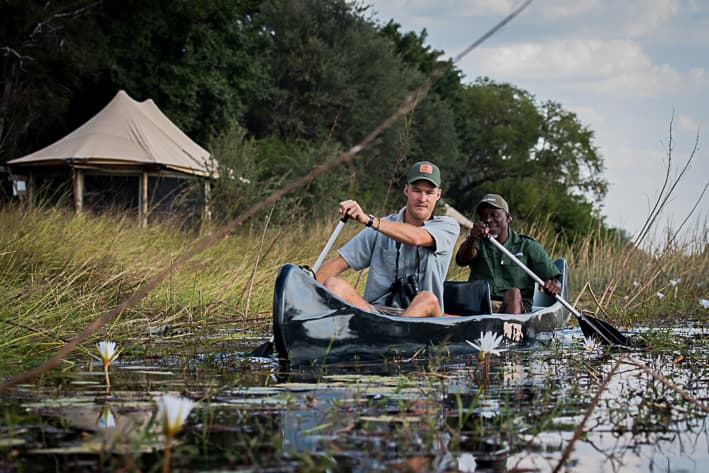
From Windsor to the wilderness
As a boy growing up in Windsor, just outside London and a stone’s throw from the British capital’s Heathrow Airport, travelling to wild places was a way of life for young Tyrone McKeith.
“My dad is a complete wildlife nut and as an only child with a step-mum who at the time worked for British Airways, I was taken on amazing adventures across the globe,” recalls Tyrone. “At around seven years old Dad took me to Zambia, where he absolutely fell in love with the Kafue National Park, as did I. I think it was the remoteness and the sense of true wilderness that appealed to him and captured my youthful imagination,” he muses.
Repeated trips saw McKeith Senior make friends with lodge owners in the park and Tyrone soon found himself spending school holidays with them, helping out where he could behind the scenes, getting an intimate glimpse of what it takes to operate a commercial enterprise in an African wilderness and cementing his love of African wildlife.
“When I left school it was an obvious choice to pursue my love of the natural sciences, so I went to the Durrel Institute of Conservation and Ecology which is based at the University of Kent, obtaining a BSc in conservation and biology,” explains Tyrone. “Towards the end of my degree I sent emails to everyone I knew in Zambia looking for work, and got a job with a safari operator. So two days after graduating towards the end of 2009 I jumped on a plane to start a new life in the wilds of the South Luangwa,” he laughs.
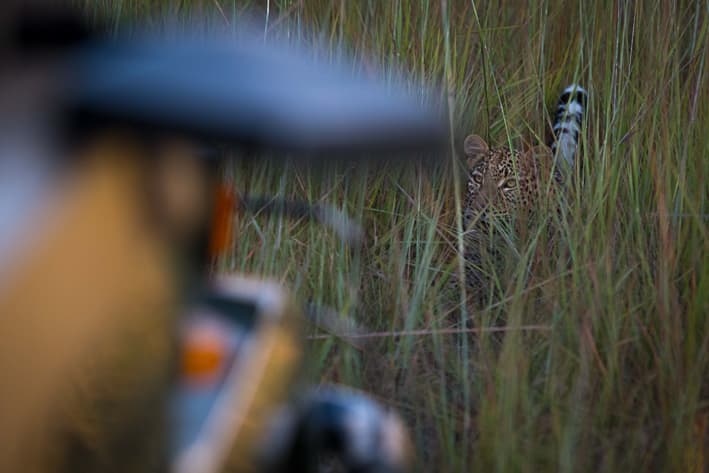
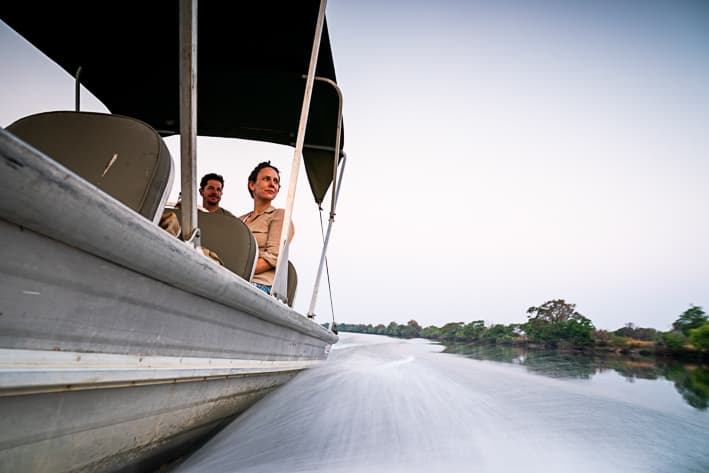
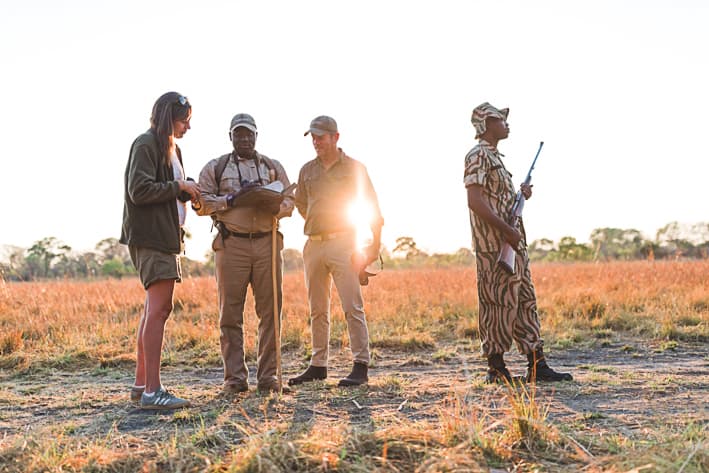
Return to the Kafue…
He began a successful guiding career in the Luangwa where he worked for a year, but his love for the Kafue tugged at his heartstrings, so when the opportunity to go and guide on the legendary Busanga Plains presented itself, he jumped at it.
“I spent the next four years guiding in the Busanga region and loved every second of it. Then, almost five years to the day after moving to Zambia I bumped into an old Zambian friend from university – Phil Jeffery. He’d been working for Wilderness Safaris and while catching up over a few beers we decided to go into business together and set up our own camp in the Kafue. A week later we both quit our jobs and went to register our new venture and so Jeffery & McKeith Safaris was born.
“When started the company we had no idea what to call our new business. So we used our names. Unwittingly, we created a sense of a more old-fashioned safari that enshrined the ethos we’ve built the company on. We’ve taken our lead from the old guard of Zambian operators who have built our industry up here – the likes of Robin Pope Safaris, Norman Carr Safaris.”
Tyrone and Phil selected the largely unexplored Musekese region of the Kafue for their first camp, a huge 2,800 square kilometre swathe of this sprawling 22,400 square kilometre national park that’s one of the largest in Africa. They unveiled Musekese Camp a little over a year later.
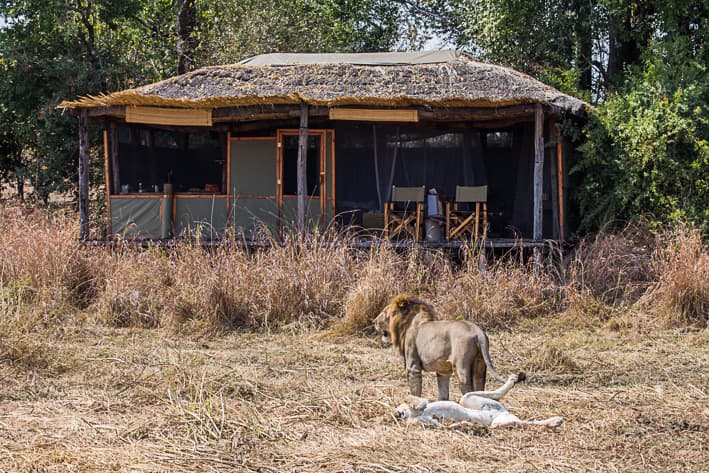
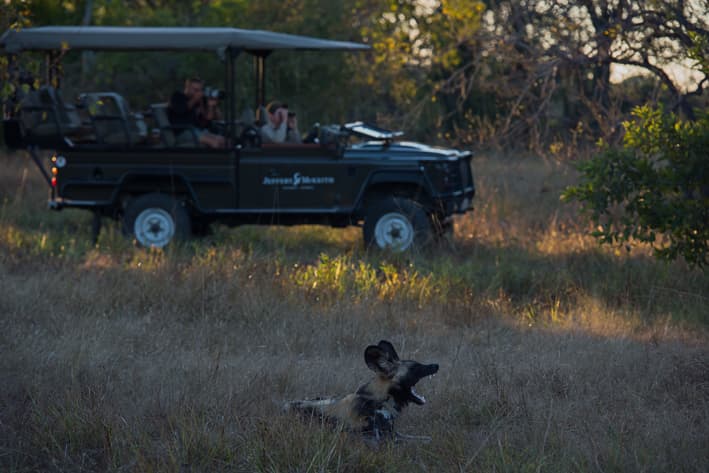
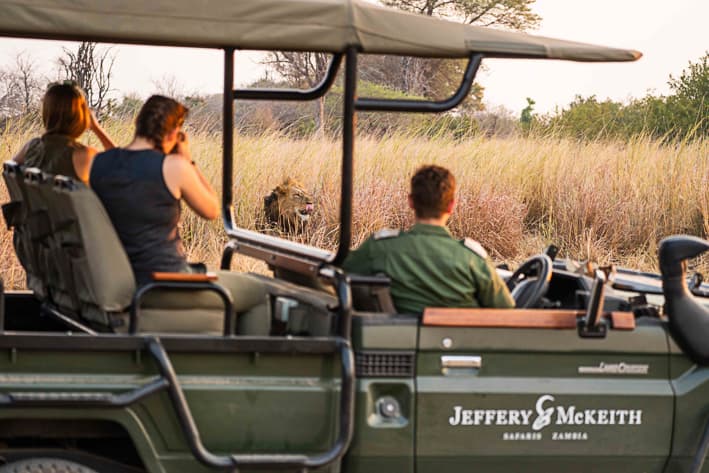
Making an impact
“This first location was home to Musekese Camp for three years. To begin with it was a very basic camp offering rustic accommodation, walking and boat-based game viewing on the Kafue River,” says Tyrone. “It was exceptionally remote, which we just loved, and the area had enormous potential.
“One of our founding pillars is that we want the areas we operate in to benefit from us being there. In those days the Musekese region had been heavily poached which was something we wanted to address. We knew that by establishing a presence there we would hopefully help to drive the poachers out.”
Musekese Camp was the only camp at that time on the eastern side of the Kafue River inside the national park. “There wasn’t a lot of game there when we arrived,” says Tyrone. “There were no breeding herds of elephants on the eastern side of the river, only the odd bull elephant. There was a single, three-legged lion and we didn’t see leopard at all.
“Almost immediately we began operating we started picking up snares but over the first few years incidences of poaching became fewer and game numbers began to improve, so we thought we were doing well. Four years into our venture we decided to relocate the camp 5km further west to a vast, 7km long lagoon system called Eden Lagoon.
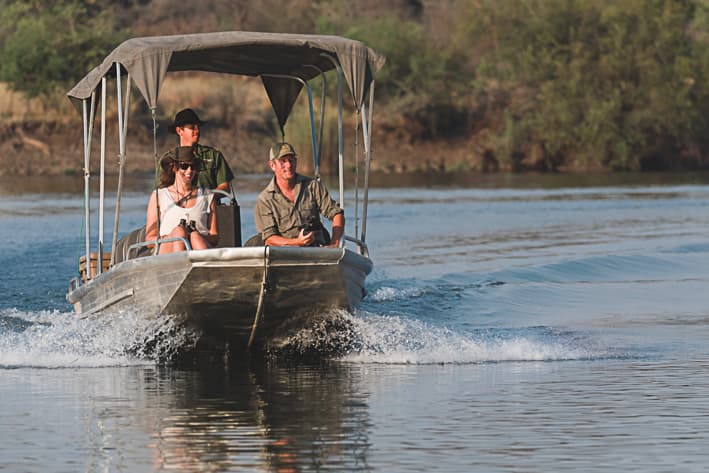
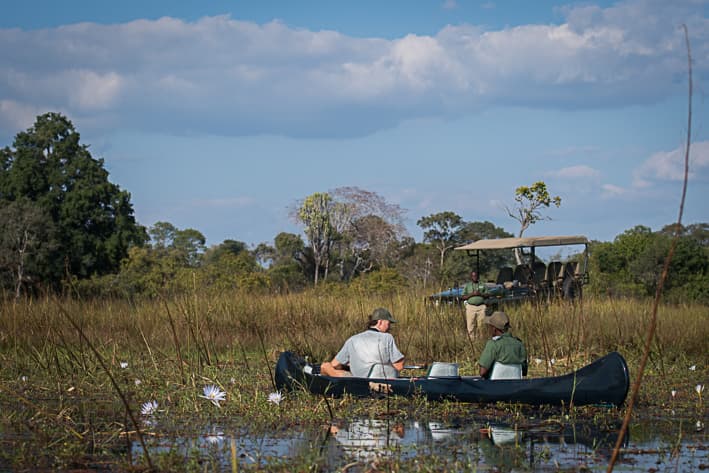
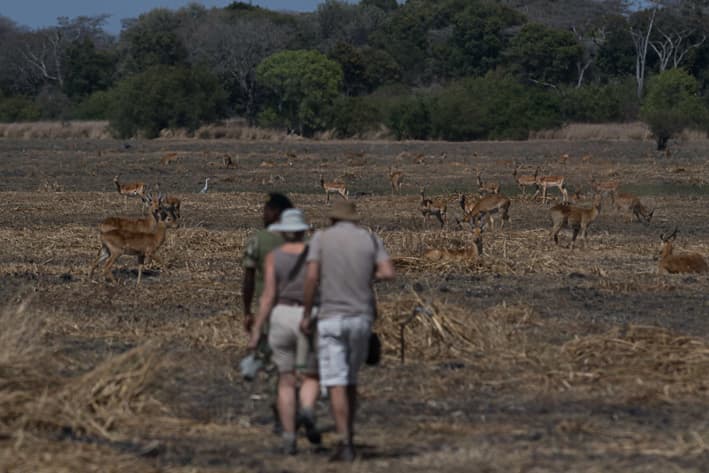
Discovering Eden… And a conservation challenge
“When we moved into the Musekese area we had no idea this lagoon existed. It took a good couple of years of exploring for us to get the lay of the land. It’s an amazing feature virtually surrounded by miombo woodland that attracts enormous numbers of wildlife including huge herds of elephant, bush pigs and antelope like puku, as well as predators like lion and leopard.”
Tyrone and Phil built a road to the newly relocated camp to enable them to get materials in more easily, linking up to the main tar road to this north-eastern section of the Kafue. It enabled them to upgrade the camp and the safari offering. Their presence seemed to act as a beacon for the wildlife which seemed to be thriving as poaching decreased.
“In 2017 things suddenly took a turn for the worse as we lost a large number of lions, hyena and other wildlife to poaching. In one snare line we found hyena, wild dog and lion,” explains Tyrone. “We realised we had to do something. We scraped some money together at the end of 2016 and approached an existing conservation organisation in the park for support. We wanted to station a team of anti poaching officers in our area, but they couldn’t help us.
“We desperately wanted to get back into conservation and use our tourism business to help fund it and drive it and so we went to the Zambian government with a view to setting up our own conservation organization. That’s how we started Musekese Conservation – a fully fledged conservation NGO with its own Anti Poaching Unit (APU) in the Musekese region of the Kafue.
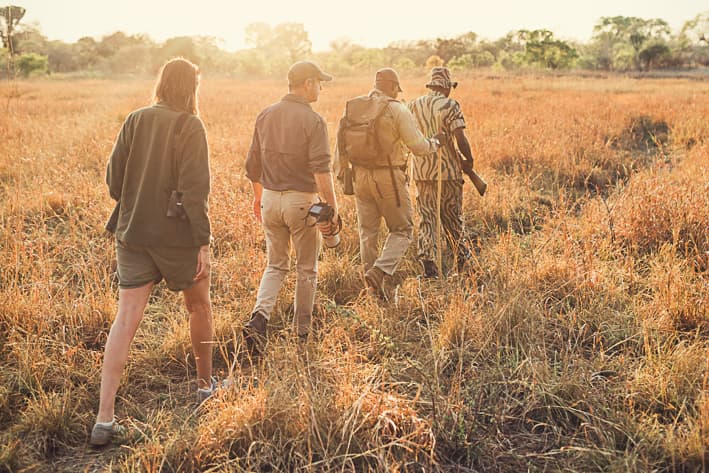
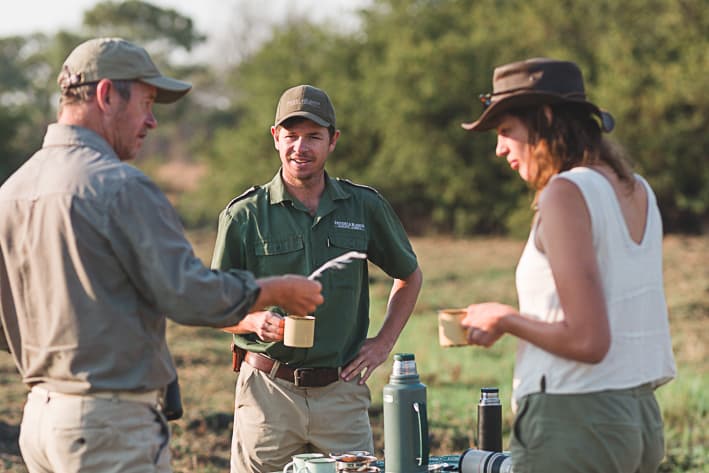
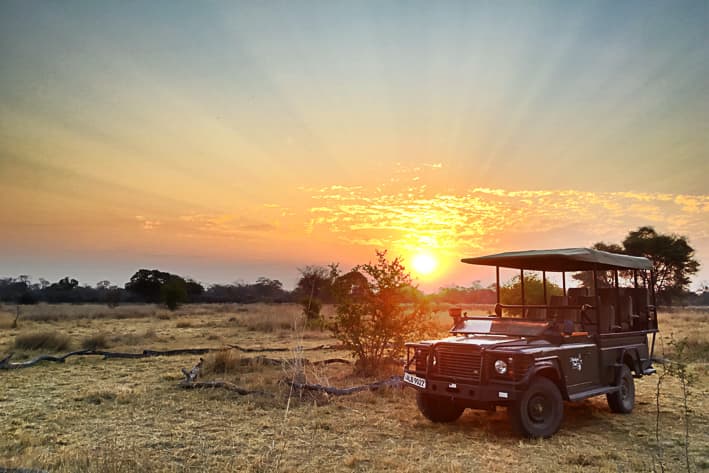
Conservation + tourism = hope
With scouts from the Department of National Parks and Wildlife seconded to the new NGO, Tyrone and Phil created an anti-poaching base camp 20km south of Musekese Camp and began training their men and patrolling the area.
“That was the end of 2017. Now, just four years later, we have 32 dedicated anti-poaching officers, a team of support staff, vehicles and an aircraft so Musekese Conservation has gone from strength to strength, through sheer necessity,” Tyrone explains.
“From the low of 2017 we have managed to build things up again with wildlife populations increasing in number and expanding their territories.
Patrolling an area of 2,800 square kilometres is always going to be a challenge but we have kept pressure on and are slowly getting results. We have collared elephants and can see they are using more of the landscape. It’s a labor of love but it’s going well.”
Jeffery & McKeith Safaris directly supports Musekese Conservation, not just through a bednight levy but through a significant portion of its profits being ploughed into the NGO, helping to purchase vehicles, a boat and supporting its growing team of scouts and support staff. “When it comes to the scouts – they are formally civil servants so we do not pay their salaries,” says Tyrone. “What we do is supplement their income with stipends and provide them with uniforms, food, supplies and vehicles,” he adds.
“When COVID19 hit, we didn’t have the revenue to pump into the organisation, so we employed a project manager to help us get funding so we could keep up the momentum. We’ve received some great funding from previous guests and funding agencies alike and more than a few grants have come in, thank goodness,” says Tyrone. “Hopefully, with tourism looking more positive in 2022, we can soon start putting more revenue into the conservation side of things again.”
In spite of making waves in the safari industry, at heart Tyrone and Phil are ecologists and love the academia of conservation, most especially where proper scientific research is concerned.
“We’ve started a research arm of the NGO and currently have a Masters student and an intern collecting data in the area,” says Tyrone. “We didn’t want to be just a conservation organisation picking up snares.
“We wanted to measure the effect of removing snares on wildlife numbers in a proper, academic and scientific manner, pulling together statistical models so that we can see that collecting 100 snares this year has resulted in 20% more impala in our core areas, for example. If the research shows there is no positive impact, we need to find out why and tailor our models to fit.”
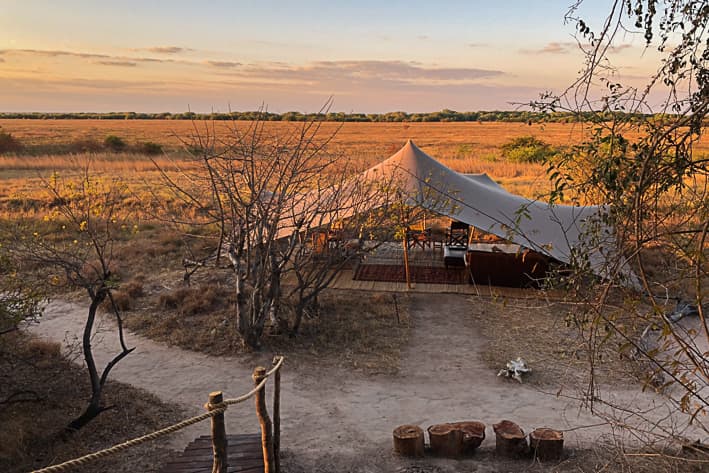
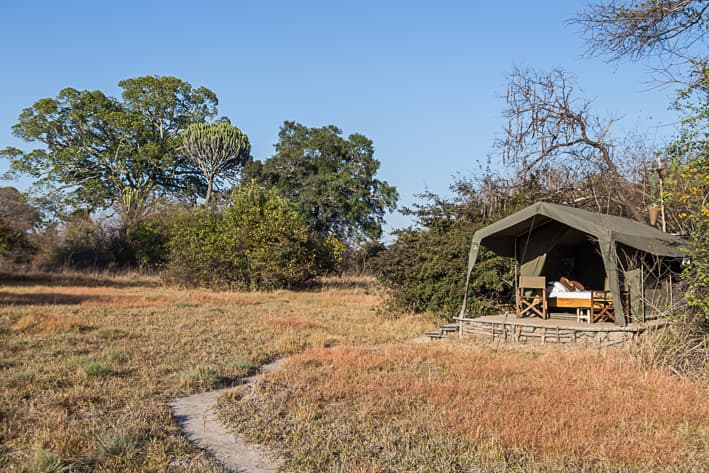
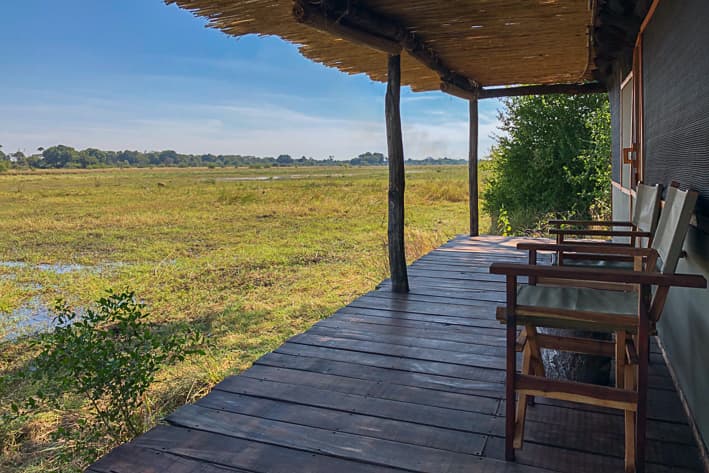
Loving the Kafue
According to Tyrone, being one of the largest national parks in Africa is both a blessing and a curse for the Kafue. “It’s just so big, no one visit is going to give you a true idea of what it’s all about. The Musekese area is like nowhere else. It’s completely different to, say, the Busanga Plains or the south around the Nanzhila Plains area. It’s just vast. There is no snapshot that can sum up what the Kafue is. The biomes are so varied. Before we moved into the Musekese area no one really knew what it was like. We’re still exploring it all these years later,” he laughs.
“It’s great that the Kafue is so big. But it’s also a challenge because it’s hard to encapsulate from a tourism marketing point of view what the Kafue is and what it offers as this can change literally within a 10km radius!”
When you fly in to Musekese you land at Lufupa airstrip which is very close to Musekese Camp as the crow flies. “It’s on the other side of the river and is very different to the area around Eden Lagoon,” says Tyrone. “When you land you might see a few puku and the odd waterbuck on a lagoon there, maybe an elephant if you’re lucky. Then you cross the river to get to us and you suddenly see 1000 puku, bushpigs, kudus and game in abundance,” he laughs.
“The game density around here is just insane, and that applies to predators too,” says Tyrone. “We have recorded 27 different lions in two prides and where leopards are concerned, if we see one a day that’s unusual because we usually see two to three every day, relaxing, hunting and generally just being leopards. It’s beyond our wildest dreams,” he enthuses.
Musekese Camp has been joined by the small, more rustic Ntemwa Busanga Camp on the Busanga Plains, an easy three-hour game drive to the north, adding to the authentic, classic bush camp experience Jeffery & McKeith offers.
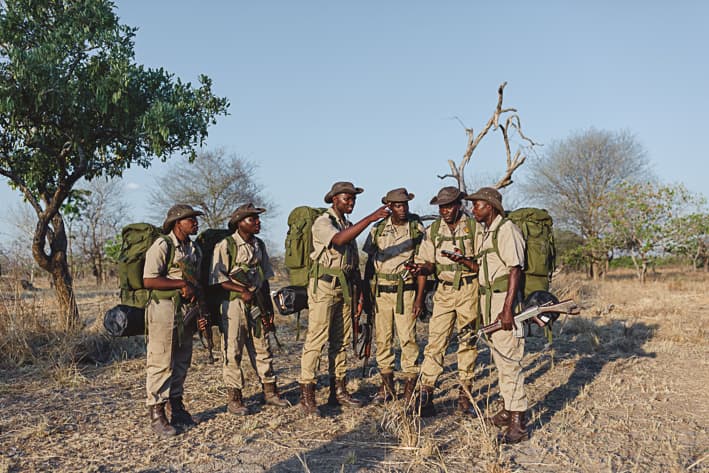
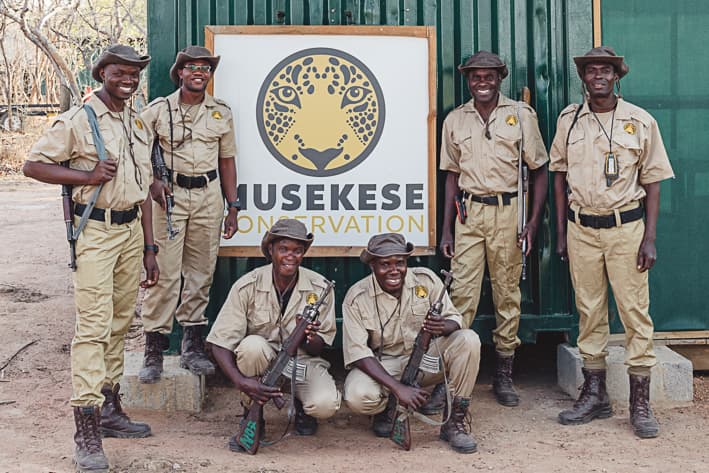
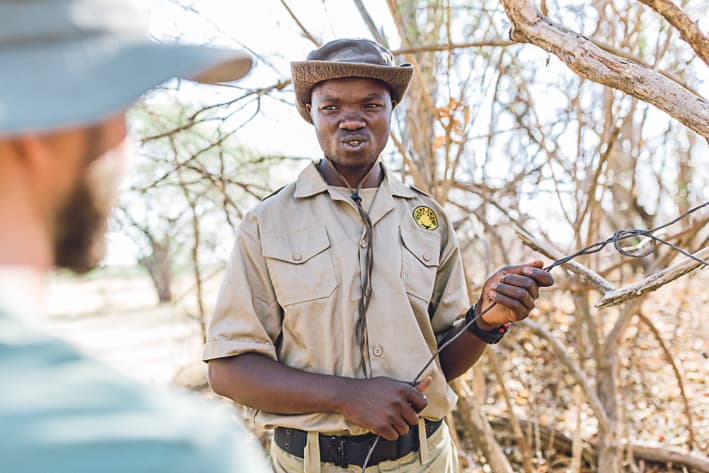
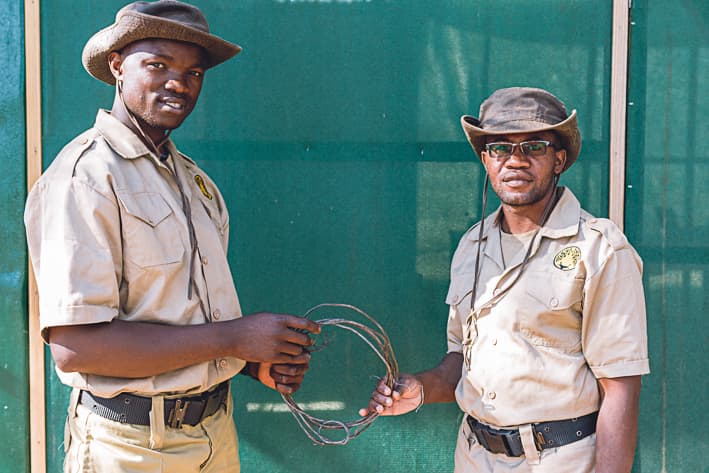
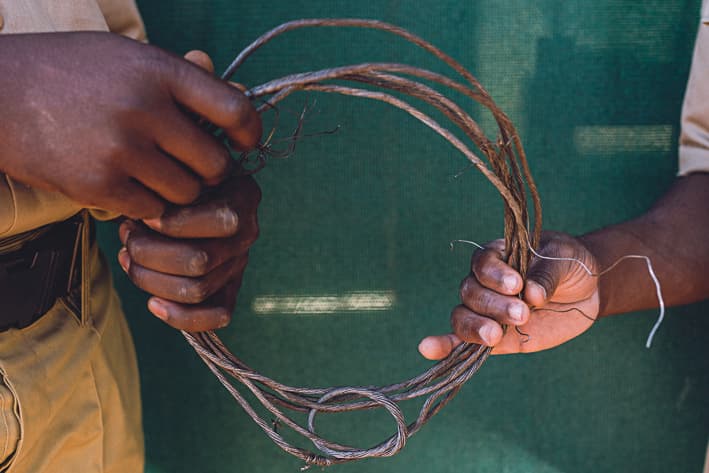
Hands on…
That experience is very much a hands-on one, meaning that both Tyrone and Phil are directly involved in the day-to-day running of their camps and meeting guests. “I am in camp all the time,” laughs Tyrone. “It’s something that’s rooted in practicality as well as business sense because I am not from Zambia, so when I moved here I needed somewhere to live. Camp is ‘home’ for me!”
Both Musekese and Ntemwa Busanga are camps that perfectly meet the Stanley Safaris mission to offer guests wonderful hidden gems, far from the madding crowds that offer a connection with the incredible, inspirational individuals who own and run them and the equally amazing teams they form around them. You may even be guided by Tyrone and Phil!
“Both Phil and I used our experience as guides to consolidate the company as a lot of our guests had known us as guides when we both started out here,” explains Tyrone. “So we both guided to begin with, slowly building up a guiding team around us as we grew. Now with our two camps we are part of a guiding roster with these talented individuals. So while you may not be personally guided by us, we are still in camp and very much part of the guest experience.
“It’s important to us and we are not going to lose sight of this, but practically we can’t be everywhere all of the time. So we’ve taken the time to gather amazing people around us who complement and live our brand. Our team, ethos and reason for existing is evident even when we’re not out guiding.
“The way we guide here is rooted in conservation and our passion for conservation. It helps us put things in context. Because of our conservation background and our conservation activities with Museseke Conservation, we offer a fresh viewpoint in the guiding experience. It’s a unique nuance and one we love to share,” says Tyrone.
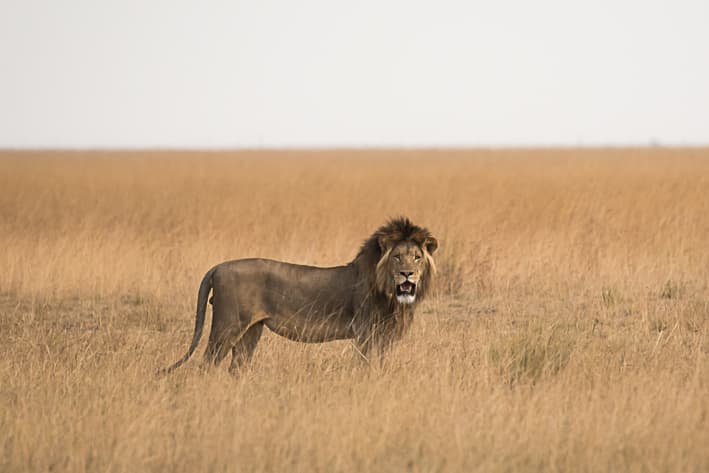
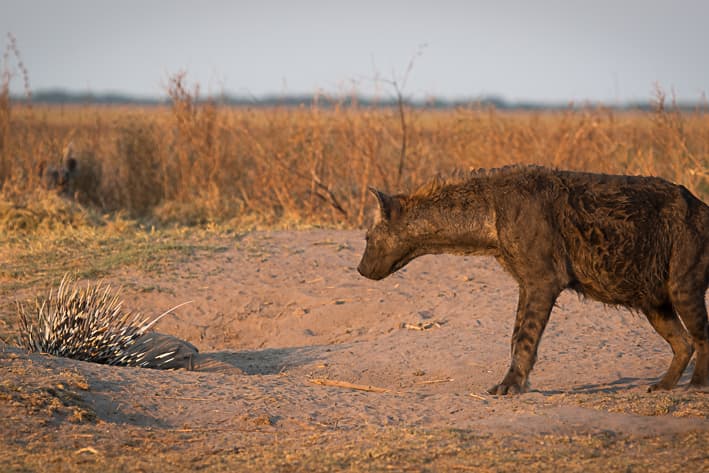
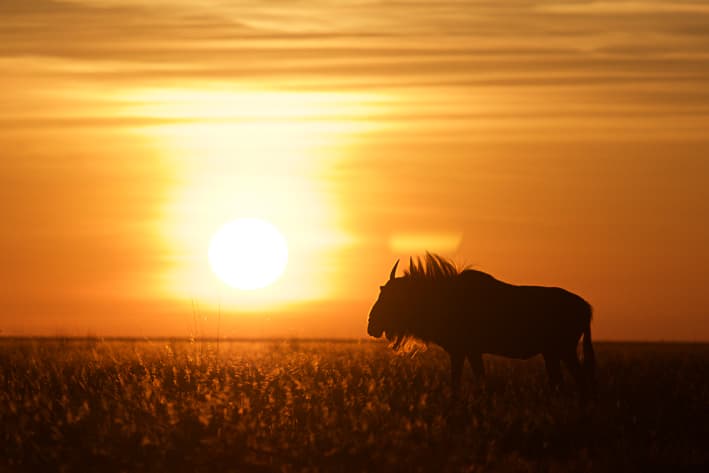
Enter Classic Zambia… And Liuwa Plain!
To expand its horizons and offer a unique combination of two of Zambia’s most beautiful national parks, Jeffery & McKeith has merged with Tusk and Mane Safaris – a like-minded operator in the Lower Zambezi National Park.
“We’ll be marketing both businesses under the Classic Zambia brand umbrella and now have our own aircraft and will be able to offer flights in our itineraries, which will make things easier for guests,” says Tyrone. “Next year (2022) is looking hugely positive and we hope to see the return of our international guests. We feel confident that 2023 should see things getting back to pre-COVID19 numbers. And combining the Lower Zambezi and Kafue is going to make for amazing itineraries.”
The future will also see Jeffery & McKeith increasing its offerings in another destination it absolutely loves – Liuwa Plain National Park.
“We started working in Liuwa Plain a couple of years ago through providing support and logistics for international film crews making wildlife documentaries there,” explains Tyrone. “Through this we perfected the ability to put mobile camps together which eventually attracted paying guests.
“Every year we now put together a few dates for mobile safaris in Liuwa, taking what we learned working with film-makers and offering the experience to small groups of safari enthusiasts. We can also put together bespoke trips to Liuwa. Generally these are around November when wildebeest are calving and into December, although experience has taught us that May is also a magic month to be on safari in Liuwa.”
The Jeffrey & McKeith Liuwa experience doesn’t end there, though, as Tyrone explains. “There are four community owned campsites dotted around Liuwa Plain National Park and we have permission to book these on a private basis, allowing us to take over an entire campsite for our guests and put together a superlative mobile safari experience. This gives us a new dynamic. We bring in our entire team – taking over the whole campsite, creating a completely bespoke Jeffery & McKeith experience in Liuwa.”

